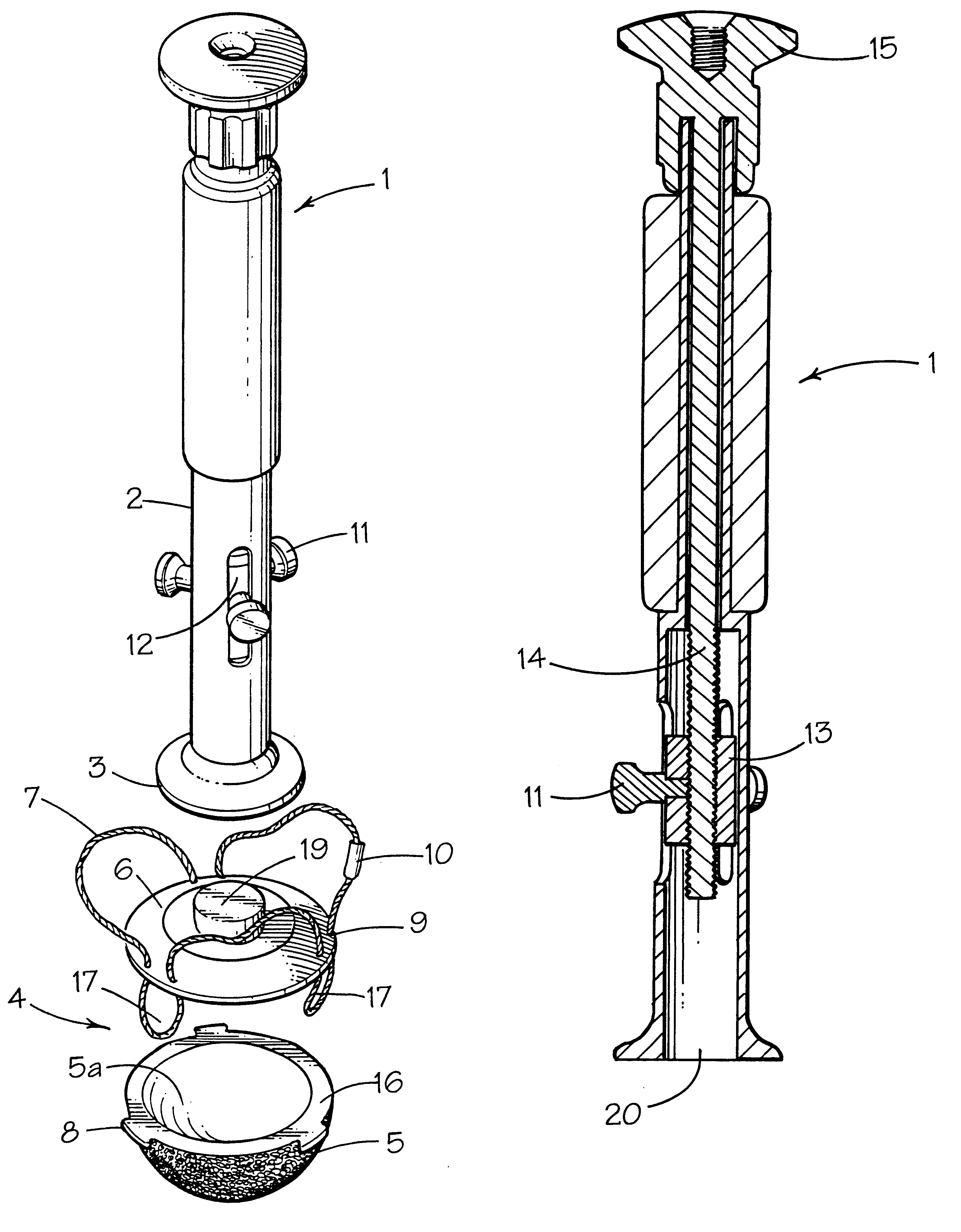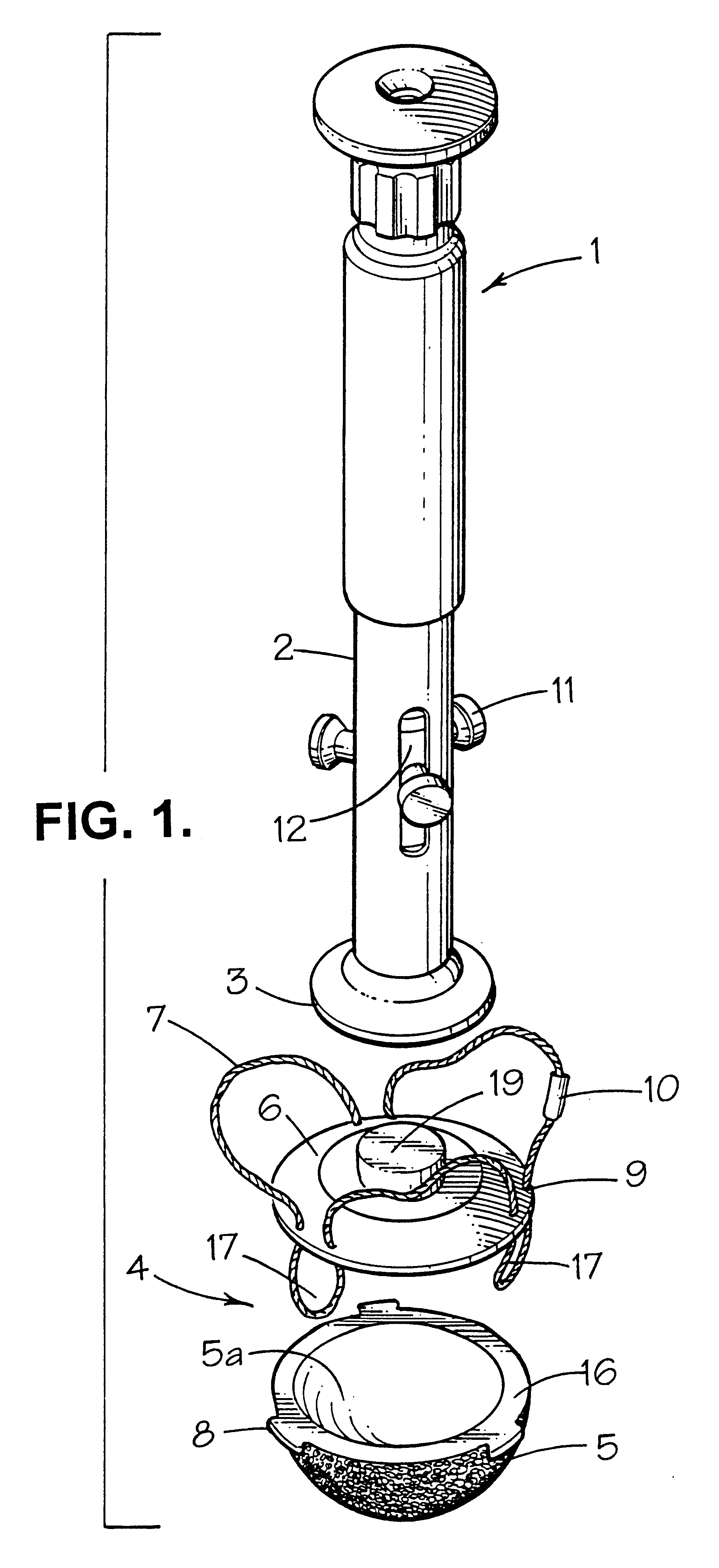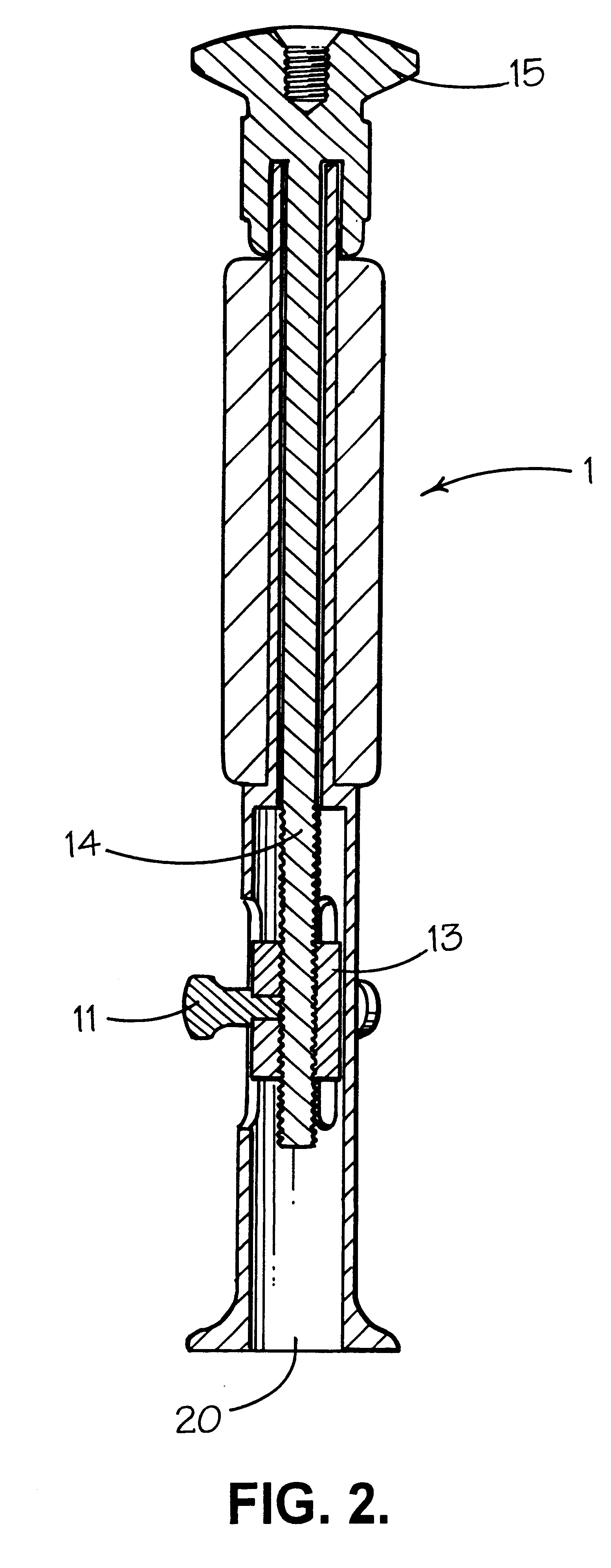Prosthetic implant and surgical tool
a technology for applied in the field of prosthetic implants and surgical tools, can solve the problems of inconvenient placement of inner hemispheres, damage to insertion tools, and insufficient force applied to impaction forces, and achieve good degree of rotational and axial control of implants, reduce the risk of unit damage during fitting, and good visibility of implants
- Summary
- Abstract
- Description
- Claims
- Application Information
AI Technical Summary
Benefits of technology
Problems solved by technology
Method used
Image
Examples
Embodiment Construction
Referring to FIG. 1, there is shown a surgical tool 1 having an elongate body 2 and a first end surface 3 for bearing on a prosthetic implant 4.
Prosthetic implant 4 comprises a main body portion 5 which is an acetabular cup manufactured from cobalt chrome and intended for use as part of a metal on metal articulating joint. The inner articulating surface 5a of acetabular cup 5 is highly polished and is covered (when the implant is assembled in readiness for implantation in a prepared acetabular socket of a patient) by a disposable protective cover 6 which is manufactured from a plastics material such as polyethylene.
As will be apparent from the foregoing description, the provision of a disposable protective cover is a preferred feature of the invention. With the tool and prosthetic implant depicted in FIG. 1, the disposable protective cover 6 may, if desired, be omitted. In this case, end surface 3 of tool 1 would be provided with one or more flanges (not shown), or would itself be o...
PUM
 Login to View More
Login to View More Abstract
Description
Claims
Application Information
 Login to View More
Login to View More - R&D
- Intellectual Property
- Life Sciences
- Materials
- Tech Scout
- Unparalleled Data Quality
- Higher Quality Content
- 60% Fewer Hallucinations
Browse by: Latest US Patents, China's latest patents, Technical Efficacy Thesaurus, Application Domain, Technology Topic, Popular Technical Reports.
© 2025 PatSnap. All rights reserved.Legal|Privacy policy|Modern Slavery Act Transparency Statement|Sitemap|About US| Contact US: help@patsnap.com



